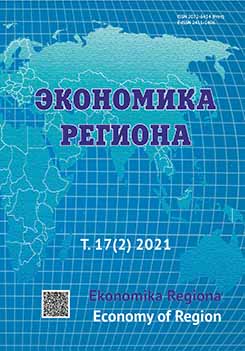Оценка эффективности экономических санкций: возможности систематического анализа
Effectiveness of Economic Sanctions: Assessment by Means of a Systematic Literature Review
Author(s): Ruslan Semenovich Grinberg, Sergey Anatolyevich Belozyorov, Olena SokolovskaSubject(s): Economy, Economic policy, International relations/trade, Socio-Economic Research
Published by: Институт экономики Уральского отделения Российской академии наук
Keywords: economic sanctions; effectiveness; systematic literature review; basic sample; representative sample; targeted sanctions; comprehensive sanctions; regional agreements; costs; political regime;
Summary/Abstract: In 2014, the United States, the European Union (EU) countries and some other states have imposed economic sanctions against Russia. The overcoming of sanctions requires an understanding of their effectiveness. Thus, we aimed to identify factors of the effectiveness of economic sanctions by reviewing the literature that considers sanctions as a tool for transforming the current national policies. The applied methodology of the systematic literature review (SLR) includes the following stages: 1) determining a basic sample of publications based on a keyword search in Web of Science, Scopus, Russian Science Citation Index, SSRN, EBSCO, Ideas/RePec, Google Scholar, Cambridge University Press, Routledge, De Gruyter JSTOR, Springer, Taylor & Francis; 2) identifying a representative sample based on the authors’ criteria (type of publication, language, character, content and context); 3) synthesising the representative sample; 4) reporting the research results. A method of comparative and graphical analysis was used to present the findings. The analysis of relevant literature allowed us to conclude that economic sanctions are more effective if 1) sanction costs for a target country are higher than for a sender, including those occurring as a result of regional inequality; 2) sanctions are designed as a short-term measure; 3) sanctions are multilateral and imposed by international institutes, including through regional trade agreements; 4) sanctions are targeted at democratic regimes. Moreover, the most preferred type of sanction — targeted (smart) sanctions — are less effective in achieving their goals than traditional comprehensive ones. Further review studies may focus on targeted economic sanctions (first and foremost in Russia) and include publications, analysing case studies of individual countries and industries.
Journal: Экономика региона
- Issue Year: 17/2021
- Issue No: 2
- Page Range: 354-374
- Page Count: 21
- Language: Russian

